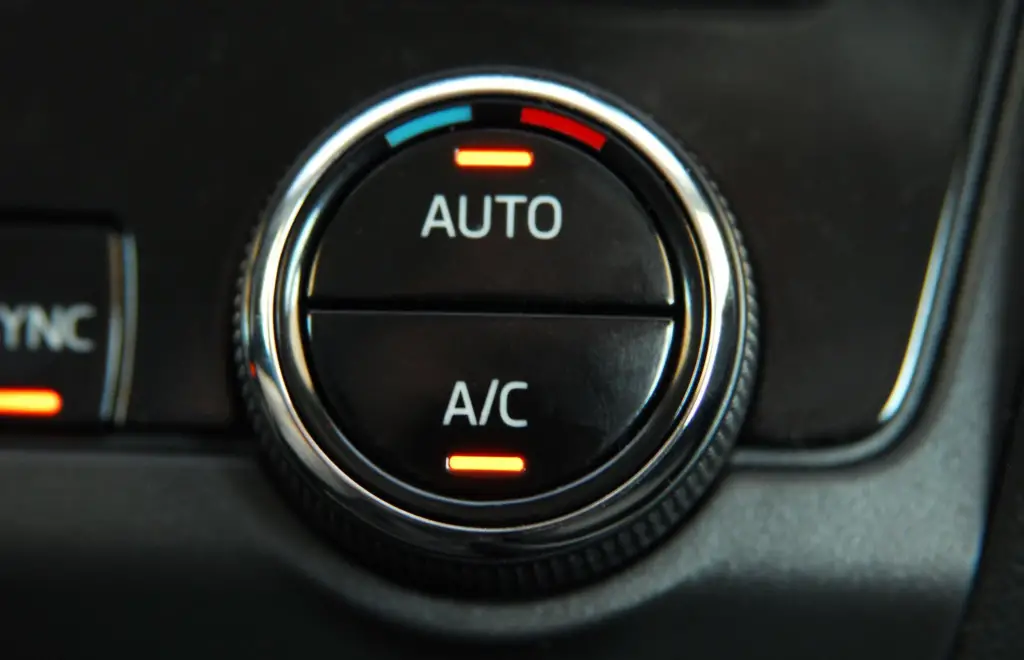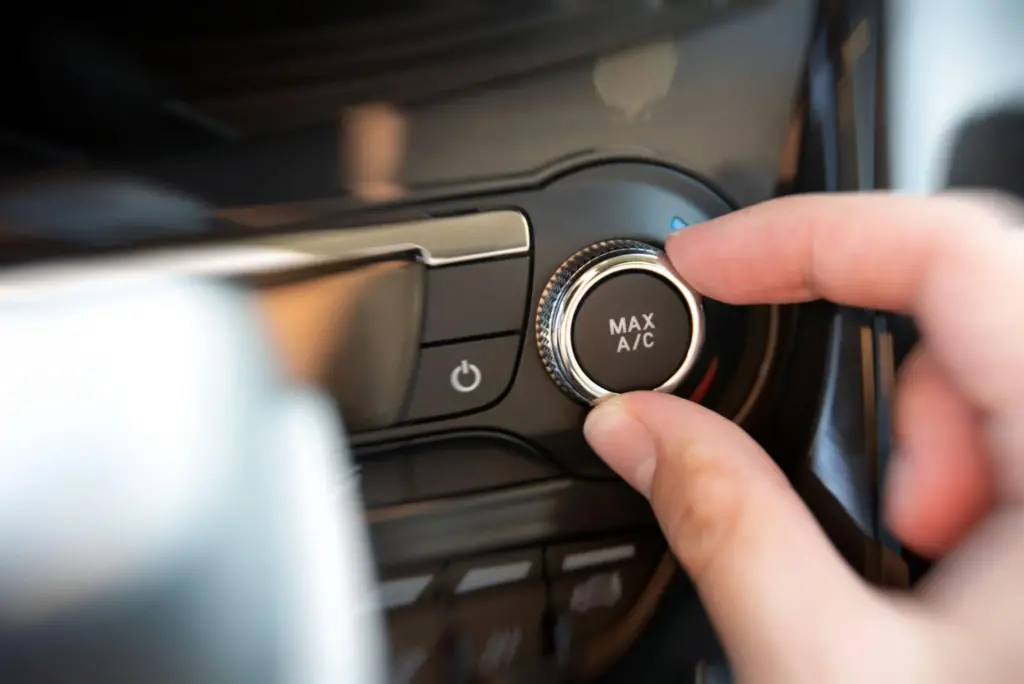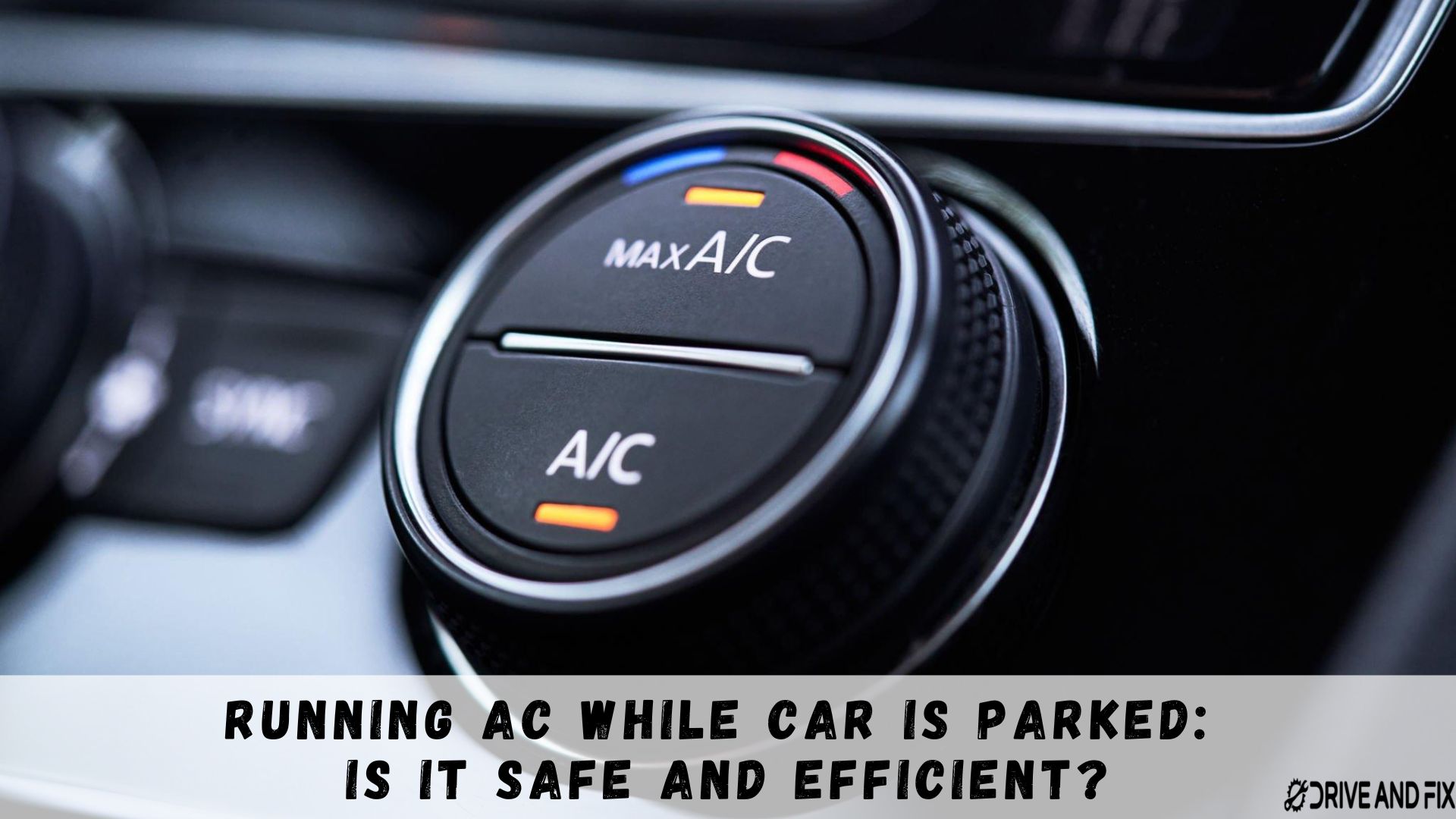Car air conditioning is a lifesaver during hot weather, making it more comfortable to drive and keeping passengers cool. However, it’s a common practice for people to leave their car’s AC on even while parked, especially in hot and humid climates. This practice has sparked a lot of controversy and debate.
Here, we will explore the pros and cons of running AC while car is parked, as well as safety guidelines, best practices, and common myths and misconceptions.
The Mechanism of Car Air Conditioning
To understand the impact of running your car’s AC while parked, it’s essential to know how the system works. Here are some key components of a typical car AC system:
Parts Of A Car AC System
- Compressor: The compressor compresses the refrigerant gas and transports it to the condenser.
- Condenser: The condenser turns the refrigerant gas into a liquid form, releasing heat in the process.
- Evaporator: The evaporator removes heat from the car’s interior and cools the air.
- Expansion valve: The expansion valve regulates the flow of refrigerant to the evaporator.
- Refrigerant: The refrigerant is a chemical that circulates through the AC system, absorbing and releasing heat.
How the System Works to Cool Down the Car
The car AC system works by removing heat from the air inside the car and releasing it outside. Here’s a simplified explanation of the process:
- First, the compressor compresses the refrigerant gas before passing it to the condenser.
- The condenser turns the refrigerant gas into a liquid, releasing heat in the process.
- The refrigerant travels to the expansion valve, which regulates its flow to the evaporator.
- The evaporator removes heat from the air inside the car, cooling it down.
- The cooled air is blown back into the car by the blower fan.
- The refrigerant absorbs the heat from the evaporator and travels back to the compressor to start the process over.
The Power Source for the AC System
The car’s AC system is powered by the car’s engine, which drives the compressor. When the engine is running, the compressor is powered by a belt connected to the engine’s crankshaft. This means that the AC system only works when the engine is running.
Effects of Running AC While Parked

While running your car’s AC while parked can be tempting, it can have several adverse effects. Here are some key factors to consider:
Battery Drainage
Leaving your car’s AC on while parked can drain the battery quickly, especially if the engine isn’t running. Here’s how the AC system drains the car battery:
- When the engine is running, the alternator recharges the battery, offsetting the power used by the AC system.
- When the engine is off, the AC system draws power directly from the battery, which can cause it to drain quickly.
- If the battery is already weak or old, leaving the AC on while parked can drain it completely, leaving you with a dead battery.
Outcomes of Keeping the Car AC On for an Extended Period
Leaving your car’s AC on for an extended period can have several consequences, including:
- Reduced battery life: As mentioned earlier, running the AC while parked can drain the battery, which can reduce its overall lifespan.
- Increased wear and tear: The AC system’s components, especially the compressor, can wear out faster if it’s left running for an extended period.
- Higher repair costs: If the AC system components wear out faster, it can result in higher repair costs.
Fuel Consumption
Using your car’s AC system can also impact its fuel economy, which can lead to higher fuel costs and more harmful emissions. Here’s how AC usage affects fuel consumption and the environment:
- The AC system draws power from the engine, which can reduce fuel efficiency by up to 20%.
- The more the AC is used, the more fuel is consumed, which can lead to more harmful emissions and air pollution.
Health Risks
Leaving your car’s AC on while parked can also pose health risks to you and others, especially if the AC system is faulty. Here are some key health risks to consider:
- Carbon monoxide poisoning: If the car’s exhaust system or AC system is leaking, it can release carbon monoxide, a deadly gas that can cause headaches, dizziness, and even death.
- Risks to children and pets: Leaving children or pets in a parked car with the AC on can be dangerous, especially if the vehicle is parked in direct sunlight or if the AC system malfunctions.
It’s important to be aware of these potential consequences before deciding to leave your car’s AC on while parked.
Safety Guidelines For Running AC While Car Is Parked

If you must run your car’s AC while parked, there are some safety guidelines you should follow to avoid potential negative consequences. Here are some key tips to keep in mind:
Preventing Battery Drainage
To prevent battery drainage while running the AC, you can:
- Use a solar-powered fan to circulate air inside the car instead of using the AC system.
- Park in the shade or use a car cover to reduce the temperature inside the car and decrease the need for the AC system.
- Set the AC system to the lowest fan speed and the highest temperature setting to reduce power usage.
- Use a portable jump starter as a backup power source in case the battery drains completely.
Reducing Fuel Consumption
To reduce fuel consumption while running the AC, you can:
- Park in the shade or use a car cover to reduce the temperature inside the car and decrease the need for the AC system.
- Use the recirculation setting on the AC system to avoid drawing in hot air from outside the car.
- Open the windows slightly to allow for some natural air circulation.
- Use alternative methods of keeping the car cool, such as a windshield shade or a portable fan.
Ensuring Air Quality
To ensure good air quality inside the car and prevent carbon monoxide poisoning, you can:
- Regularly check and maintain the car’s exhaust and AC systems to ensure they’re working properly.
- Avoid parking in enclosed spaces with poor ventilation, such as garages or tunnels.
- Only use the AC system when the car is running and the windows are open to ensure proper air circulation.
- If you suspect a carbon monoxide leak, turn off the AC system and get out of the car immediately.
By following these safety guidelines, you can help prevent potential negative consequences of running your car’s AC while parked.
Benefits and Drawbacks of Running AC While Car Is Parked
Like any decision, there are both benefits and drawbacks to running your car’s AC while parked. Here are some key points to consider:
Benefits
- Comfort and convenience during hot weather: Running the AC while parked can help keep you cool and comfortable while waiting in the car, especially during hot weather.
- Protection of pets and children from heatstroke: Leaving pets or children in a parked car without AC can be dangerous, as temperatures inside a car can quickly rise to dangerous levels. Running the AC can help prevent heatstroke and other heat-related illnesses.
Drawbacks
- Damage to the car battery and the environment: Running the AC while parked can drain your car’s battery and increase your car’s fuel consumption, which can be harmful to the environment.
- Potential health hazards: If the AC system is not maintained properly or is used in an enclosed space with poor ventilation, it can pose a risk of carbon monoxide poisoning or other health hazards.
Ultimately, the decision to run your car’s AC while parked should be based on careful consideration of these benefits and drawbacks, as well as any safety guidelines that may apply.
Best Practices for Running AC While Parked
While running your car’s AC while parked can provide some benefits, it’s important to do so safely and efficiently. Here are some best practices to keep in mind:
When it is Safe and Efficient to Run the AC While Parked
- Only run the AC while parked when it is absolutely necessary, such as when waiting in the car with pets or children.
- Avoid running the AC for extended periods of time, as this can drain the car battery and increase fuel consumption.
- Use the lowest fan speed and highest temperature setting possible to reduce power usage.
- Park in the shade or use a car cover to reduce the temperature inside the car and decrease the need for the AC system.
Alternative Solutions for Keeping the Car Cool
- Use a portable fan or solar-powered fan to circulate air inside the car.
- Park in a well-ventilated area or use a windshield shade to reduce the temperature inside the car.
- Open the windows slightly to allow for some natural air circulation.
- Consider investing in a remote start system to start the AC before entering the car.
Myths and Misconceptions about Running AC While Parked
- Myth: Running the AC, while parked, will not drain the car battery. Reality: Running the AC while parked can drain the car battery, especially if it is done for extended periods of time.
- Myth: Running the AC while parked is not harmful to the environment. Reality: Running the AC while parked can increase fuel consumption and harm the environment.
- Misconception: Car AC systems do not require maintenance. Reality: Regular maintenance is necessary to ensure the AC system is functioning properly and to prevent health hazards such as carbon monoxide poisoning.
Frequently Asked Questions

Can run the AC while parked damage the car’s engine?
No, running the AC while parked will not damage the car’s engine. However, it can drain the car battery and increase fuel consumption.
Is it safe to leave pets or children in the car with the AC on?
While running the AC can provide relief from the heat, it is never safe to leave pets or children in the car, even with the AC on. It is important to always supervise and monitor them closely.
Can running the AC while parked drain the car battery completely?
Yes, running the AC while parked can drain the car battery completely, especially if it is done for an extended period of time.
Is it better to open windows or use the AC while driving in hot weather?
It is more efficient to use the car’s AC system while driving in hot weather, as open windows can increase drag and decrease fuel economy. However, if you prefer to use natural ventilation, cracking the windows slightly can help circulate air.
Conclusion
Running your car’s AC while parked can provide comfort and convenience during hot weather, but it’s important to do so safely and efficiently. By following best practices and considering alternative solutions, you can avoid potential negative consequences and enjoy the benefits of a cool and comfortable car.


